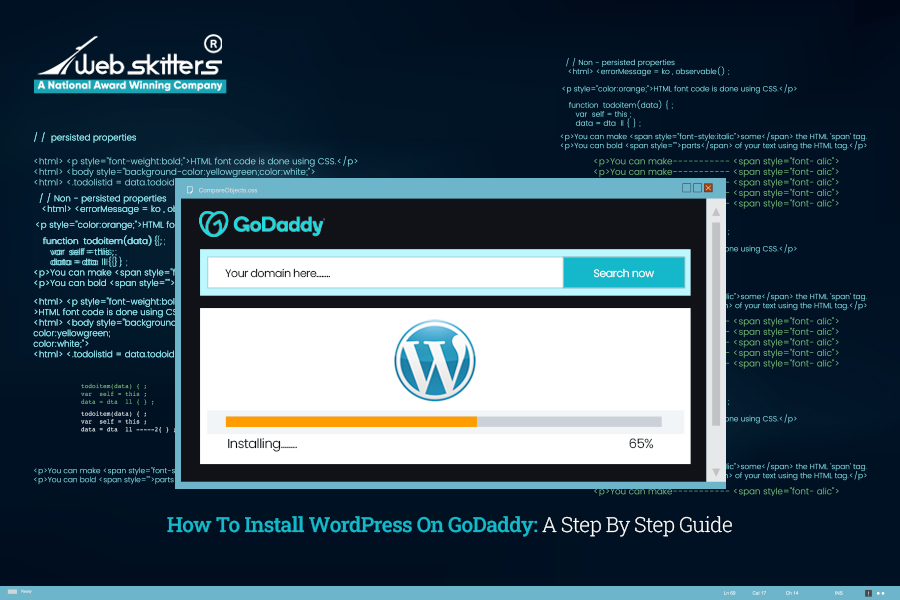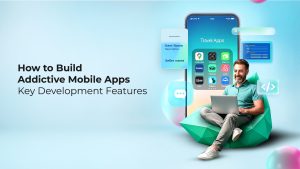The present Business world completely depends on the internet. It is one of the prerequisites, used to take your business to the next level. The utilization of websites in business is quite a common activity. As change is the only constant, a lot of businesses either shifted to a mobile app or opening a new field on the mobile app. A mobile app is an appropriate medium to run a business. As the number of mobile users is increasing day by day, mobile plays a great role in the growth of the business. Mobile apps offer a variety of features that a website cannot deliver. Its user-friendly and flexible features make it so acceptable among mobile users.
Native App
It is a software or program that works through a certain hardware platform, framework, operating system. A native application is built using specific software development tools to perform some particular task on a specific platform and environment. Just like iPhone applications are built using iOS SDK, and Swift, whereas, Android apps are developed by Java Development Kit on Java platform. Developers use IDE (Specific Integrated Development Environment) to build native apps for a selected operating system.
Most companies prefer to invest in native apps for their multitude of benefits in relation to other mobile apps, leveraging the top mobile app development frameworks. Native apps offer typically better performance. As it offers better facilities and better user experience, it takes a lot of effort to develop. The advantages of native apps are listed below.
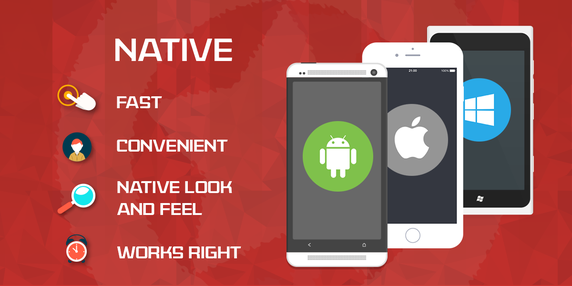
Advantages of Native App
- It offers the best performance than any other apps.
- Receives complete support from an application store. It helps to gain the credibility of your app.
- It works very smoothly thus, provide the best user experience.
- Native apps offer mobile-friendly services.
- It assures security, device compatibility, and quality to run on any operating system.
- Native applications are interactive and work smoothly in case of all inputs and outputs.
- It can without an active internet connection.
- It does not require to depend on any third-party platform and libraries.
- It offers better accessibility on your mobile.
- Its services are fast and responsive because it is developed separately for a specific platform.
Disadvantages
- Developers build native apps separately for each platform (Android, iOS) which quite time-consuming.
- Separate codebases need separate skills to run the same application with similar functions on a different platform.
- Difficult programming structure for the developers.
- Native application is not suitable for simple application.
Now let us discuss the Hybrid App, what functions it offers.
Hybrid Application
Hybrid applications are the websites covered in a native packet. It is a combination of software where the elements of both Native Application and Web Applications. They essentially web apps that are designed in the shell of a native app. Hybrid apps allow developers to write code mobile applications and have the capacity to perform on multiple platforms. It often performs slowly as developers add an extra layer to build these apps, between source code and target platform. However, the advantages it offers is enough praiseworthy to gain high popularity.
Thus, Hybrid application blends native and web applications. Naturally, it contains the functionalities of both the application. Hybrid mobile applications are developed with traditional HTML, JavaScript, and CSS. It has a cross-platform facility, that’s why investors choose this medium as it saved the high cost of building an app separately.
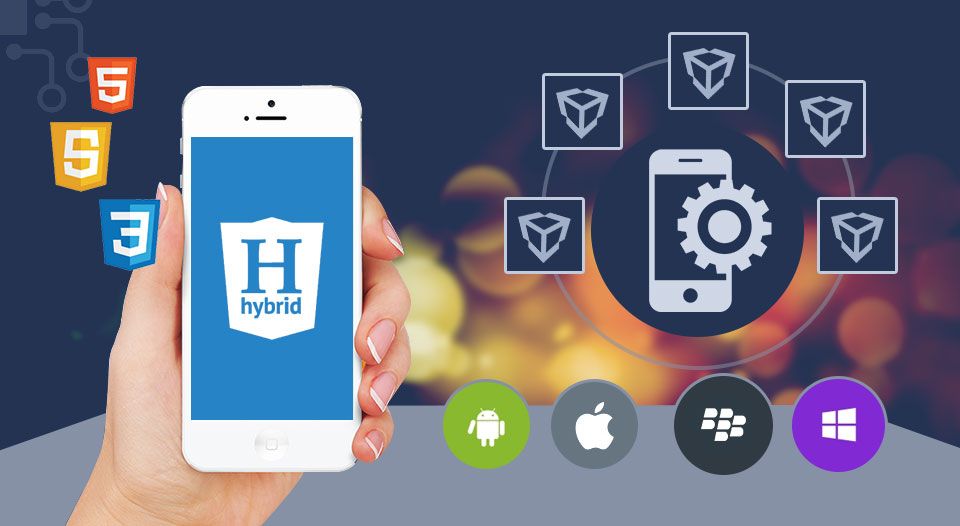
Advantages of hybrid applications:
- Integrated with Web-based services.
- The development cost is lower than the native app.
- Offers Cross-platform facility.
- The development process takes less time to develop a hybrid app.
Disadvantages:
- It takes a longer time to load.
- It cannot deliver complicated functionalities.
- It needs third-party plug-ins and libraries to add extra functions.
User Experience
Be it a Native or Hybrid application, if it fails to provide a good user experience then you will also fail to grab your customers. That is the most important thing you need to remember before you start building your app. If the user does not satisfy with your services, they will never get back to you. So, you have to cater to the best user experience in order to hold your customers.
I hope you all notice this as being a customer, so when you are providing any service you need to serve the best.
If it’s a matter of small apps then your user would not able to differentiate among a native or hybrid app. However, in case of a high-performance app, when you offer too much functionality then your customers are definitely going to face separate customer experience. As you have an idea about the advantages and disadvantages of both apps, you can recognize the different user experience, each app offers. In the case of a native app, it offers a relatively better user experience. It can run smoothly and more mobile-friendly than a hybrid app. A native app can also work without an active internet connection. That means users can access it at any time from any geographical location. In terms of performance, it, of course, provides better functionality at your fingertips than a hybrid app. As the number of smartphone users is quite high from a PC user, people tend to use a native app more frequently.
On the other hand, if you are planning to build a low performance or a small app with less functionality then a hybrid app is a far better choice. Because, in this case, there is no point to integrate complex function in a small app. So, before choosing one of the two, you have to consider one thing in mind that, how much audience you are targeting and what functions you are offering to them. That’s a quick solution.
Pricing
This is a pivotal decision you have to take as a business person, or as a developer. When the money matters, you cannot hurry in taking a wise decision. You already know that hybrid apps have single codebase to run in multiple platforms, whereas, native apps are developed separately to run on a different platform. Naturally, the pricing of both app will be different and native app developers charge quite a high pay than hybrid app developers. However, in the long run, it can go upside down. If you build a low functionality app with less costing it cannot give you the return you expect. Whereas, if you spend a little more on a native app the return will be unthinkable. Thus, your hybrid application cannot save your money as in order to grab the attention of the consumer you have to add superior functions.
So, in making this decision you need to consider the purpose and size of your app before investing. If your app is small without any complication then go for a Hybrid app, that can save your hard-earn money.
Speed
When you are giving priority to the agility of your app, you can rely upon a native app. In some cases, developers have also admitted that in spite of having single codebase and fewer features, a hybrid app cannot deliver the required speed as much as a native app. And I must tell you that, the speed of your app matters in business. People will avoid a time-consuming app in a rapid world. Nobody wants to invest any extra time in loading a site. They simply close the platform and choose a quick option. Since native apps are developed separately for a different platform, they ran very smoothly even in low internet connection.
Cross-platform compatibility
The most dominant smartphones in today’s generation are iOS and Android. As a user, we have to install the apps from apps stores, for example, Google Play store for Android devices, and Apple play store for iOS. In the case of a native app, developers use separate code to run an application on a separate platform. Whereas, in the case of native apps, developers have a single codebase that can be used to build a hybrid app, and which have the capacity to run on both platforms.
As you have gone through the advantages and disadvantages of both the app, you know that which offers better functionality. It makes it take more time to build a native app separately, but it has its own unique benefit. On the other hand, you have to focus on your purpose also. If your requirements are fulfilled by a hybrid app you must go for it. Thus, I would say the complexity of your app decides the medium you are going to choose. A brand like Instagram take two years to develop to run on an Android platform, you can follow their footstep. Thus, it is not about the time it takes your focus should be on the performance of the app.
Development Time
The time for development can affect your business in a great way. Every business owner follows a certain deadline to promote a product or to manage a project. Native apps take a quite long time in comparison to a hybrid app as it is developed using multiple codebase and complexities. Whereas having a single codebase formula, the Hybrid app reduces the time of development. However, if you develop large apps in a hybrid environment it may be a concern in the future. Thus, you have to decide if less time is at all fruitful for your business. Another solution can be you can create a Hybrid app for testing the audiences’ acceptability and then decide which one to stick with. This way you can save your time and money and develop an app quickly knowing is it appealing enough to hold your audience.
In-device Accessibility
In-device accessibility means the capability of your app to access your activities on the same device. We all have Whatsapp or Facebook installed in our device. I hope you have noticed that while operating these apps for the first time it seeks permission from you to access your camera, microphone, file manager, GPS and so on. If you do not permit to access the apps the same, they cannot do some specific tasks. This way a native app captures the whole activity you do on your device. They collect data from your browser and show relevant items, with the help of different plugins. The developers integrate such plugins to give the customer better user-experience and in turn, it helps business marketing and sale. A native app accesses all your in-built applications and performs accordingly.
A hybrid app does not come with pre-built accessibility. However, developers can integrate native C++ code and native plug-in to access the pre-built apps. But the whole task is depended on third-party native layers, codes, plugins. Still, it cannot offer as much as a native app can. Thus, in terms of in-device accessibility choosing a native app is a wise decision. At the same time, if you are considering other factors and decided to build a hybrid app having a set of accessibility-related features, you can always integrate third-party plugins.
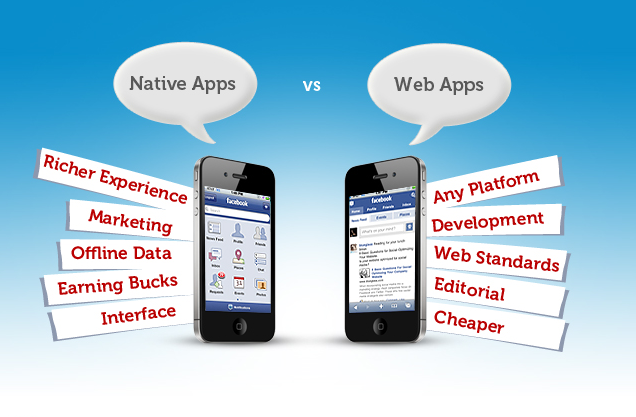
Conclusion
Analyzing all the features I hope you have come to the final decision. Your choice solely depends on your needs, purpose, and requirements of the business. Both these apps offer high functionalities to grow your business and marketing, and at the same time, both have some limitations. Therefore, considering all the above-mentioned discussions if you want to have further assistance, dial our number, we are just one call away.

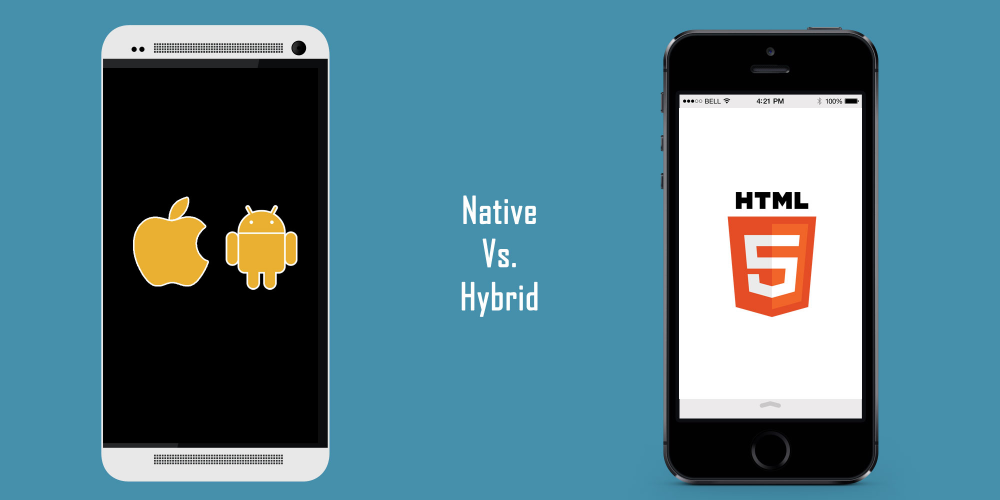
 June 27, 2023
June 27, 2023 

